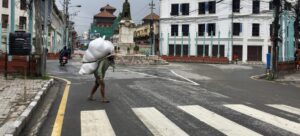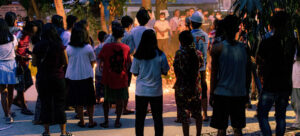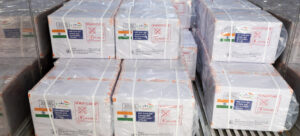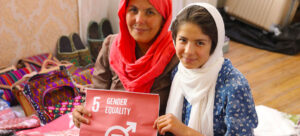More than a year into the pandemic, the fiscal impacts of the crisis are triggering debt distress in a growing number of countries and is severely limiting the ability of many, to invest in recovery and the Sustainable Development Goals (SDGs), including urgently needed climate action, Secretary-General António Guterres said.
According to the policy brief, 42 economies borrowing from capital markets have experienced sovereign downgrades since the start of the pandemic, including 6 developed countries, 27 emerging market economies, and 9 least developed countries.
Sovereign downgrades cause borrowing costs to rise, especially for developing countries, which can, in turn, increase the risk of more nations taking on unsustainable debt – especially if the COVID-19 pandemic is more protracted and deeper than expected.
“Unless we take decisive action on debt and liquidity challenges, we risk another ‘lost decade’ for many developing countries, putting the achievement of the SDGs by the 2030 deadline definitively out of reach”, Mr. Guterres urged.
The policy brief, entitled Liquidity and Debt Solutions to Invest in the SDGs, takes stock of the global policy response since April last year, assess remaining gaps and challenges for their implementation, as well as propose updates to the recommendations, presented last year, in light of developments over the past 12 months.
Need for debt relief
The brief highlights the need for debt relief to create space for investments in recovery and for achieving the SDGs.
Even in cases of elevated debt, new borrowing can lead to improved creditworthiness if it finances productive investments, it noted, adding that debt relief can also free up resources, create conditions under which countries can return to voluntary market access, and may lower a country’s overall borrowing costs, with positive impacts across the whole economy.
Assistance for small island States
The Secretary-General also urged governments to provide fresh concessional financing for developing countries, especially least developed countries and small island developing States, recapitalize multilateral development banks and accelerate the timetable for replenishing the funds, meet official development assistance (ODA) commitments and provide long-term financing to developing countries for investment in long-term growth.
In support of recent endorsements from the G7, the document also called for a new general allocation of special drawing rights reiterating the need to combine a voluntary reallocation of the rights from developed to developing countries.
The brief also urged the G20 to extend the World Bank’s Debt Suspension Initiative (DSSI) until the end of June 2022 and include middle-income countries, notably small island developing States that have been gravely affected by the crisis.
It also urged the bloc to extend the eligibility for debt relief under its Common Framework for Debt Treatment Beyond the DSSI to other vulnerable countries on a case-by-case basis, as well as consider other mechanisms that would allow countries to access the framework, without compromising the credit rating.
Financing the 2030 Agenda
The policy brief was released to coincide with the high-level meeting of Heads of State and Government on Financing for Development in the Era of COVID-19 and Beyond.
The virtual meeting, scheduled to start at 10 am (ET) will follow-up on a series of meetings and last year to mobilize action to assist the economic recovery from the pandemic.
The high-level meeting is convened jointly by the Secretary-General Prime Minister Andrew Holness of Jamaica, and Prime Minister Justin Trudeau of Canada.
Liquidity is vital, urges Guterres
Addressing the high-level meeting, Mr. Guterres called for urgent assistance for developing countries so they have the financial liquidity they need to respond to the pandemic as well as invest in recovery, or risk a “lost decade” in development terms.
“I am encouraged to see that our insistence on the necessity for a new allocation of Special Drawing Rights by the International Monetary Fund (IMF), and the reallocation of unused SDRs to support vulnerable countries, including middle income ones, is now winning widespread acceptance … let us make sure it happens – and is properly managed to the benefit of the developing world”, he said.
The Secretary-General urged a “three-phase” approach to debt, including a moratorium on debt payments, targeted debt relief, and reforms to the international debt architecture.
He also called for more responsible borrowing and lending, accepted by debtor and creditor countries, investors, market participants, credit rating agencies and international organizations, highlighting the need for a time-bound, open dialogue to build trust and transparency in a systematic, inclusive way.
“Together, with collective resolve, we can help all countries invest in response, recovery, and a more sustainable, resilient future.”











